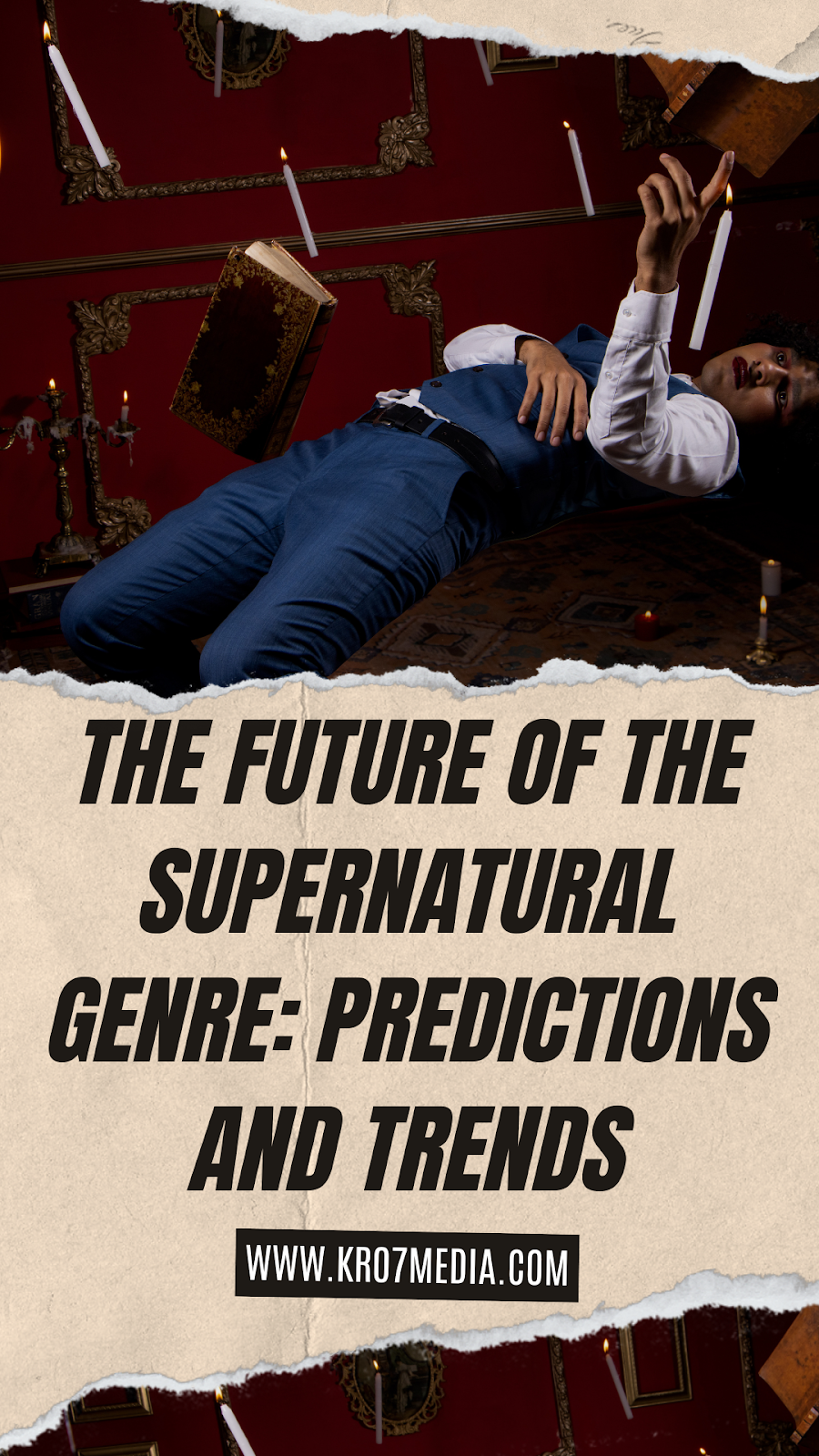The supernatural genre has always captivated audiences with its blend of mystery, horror, and fantasy. From classic ghost stories to modern vampire sagas, it has evolved over time, reflecting society's shifting fears, hopes, and curiosities. As we move further into the 21st century, the supernatural genre shows no signs of fading. Instead, it is likely to transform in new and exciting ways, influenced by technological advancements, cultural shifts, and global events. Here are some predictions on how the supernatural genre might evolve in the coming years.
1. Integration with Technology
As technology continues to advance, the line between the supernatural and science fiction may blur even further. With the rise of virtual reality (VR) and augmented reality (AR), we can expect to see more immersive supernatural experiences that blend the real world with the fantastical. Imagine a haunted house experience in VR where the ghosts seem to interact directly with you, or an AR app that overlays your environment with supernatural entities that only you can see. These technologies will allow creators to craft experiences that are not just stories, but interactive adventures where the audience is a participant.
2. Global and Cultural Influences
The supernatural genre has historically been dominated by Western narratives, but this is changing. As the world becomes more interconnected, we can expect to see a greater influence from non-Western cultures in supernatural storytelling. Folklore and myths from Asia, Africa, and Latin America are already making their way into mainstream media, bringing with them unique supernatural beings and concepts. This trend will likely continue, leading to a richer and more diverse genre that explores universal themes of life, death, and the unknown through different cultural lenses.
3. Environmental Supernaturalism
With growing awareness of environmental issues and climate change, we may see the rise of eco-supernatural stories. These narratives could explore themes of nature's revenge, ancient spirits protecting the Earth, or supernatural events triggered by ecological disasters. Such stories would resonate with contemporary concerns and offer a supernatural perspective on humanity's relationship with the natural world. This subgenre could blend horror with environmental activism, creating thought-provoking tales that entertain while raising awareness.
4. Psychological and Philosophical Depth
As audiences become more sophisticated, there is a growing appetite for stories that delve deeper into psychological and philosophical themes. Supernatural narratives may evolve to explore the human psyche, consciousness, and existential questions more profoundly. Rather than focusing solely on external threats like ghosts or demons, these stories might investigate the internal battles within characters, using the supernatural as a metaphor for mental illness, trauma, or the search for meaning. This shift could lead to more introspective and emotionally complex stories that challenge viewers to think deeply about the nature of reality and the human experience.
5. Post-Apocalyptic Supernatural
Post-apocalyptic settings have always been popular in the supernatural genre, but they may take on new dimensions in the future. As global events such as pandemics, climate change, and geopolitical tensions create a sense of uncertainty, stories set in a post-apocalyptic world could become more prevalent. These narratives might explore how the supernatural persists or even thrives in a world where civilization has collapsed. Expect to see tales of haunted wastelands, supernatural creatures emerging in the aftermath of disaster, and humans forging new myths and beliefs in a changed world.
6. Supernatural Comedy and Satire
While the supernatural genre is often associated with horror, there is also room for humor and satire. As society grapples with the absurdities and anxieties of modern life, supernatural comedy could become more prominent. This could include stories that poke fun at traditional supernatural tropes, use the supernatural to comment on current events, or explore the humorous side of living in a world where the impossible becomes possible. Supernatural comedies could provide a much-needed balance to the darker aspects of the genre, offering audiences a way to laugh at their fears and find levity in the unknown.
7. Hyper-Realism and Minimalism
In contrast to the spectacle-driven supernatural stories of the past, we may see a trend towards hyper-realism and minimalism in the genre. These stories would focus on subtle, almost imperceptible supernatural events that blur the line between reality and the supernatural. Rather than relying on special effects or elaborate settings, these narratives would create tension through atmosphere, ambiguity, and psychological realism. This approach could lead to more intimate and unsettling stories that leave a lasting impact on the audience.
Conclusion
The supernatural genre is poised for continued evolution as it adapts to the changing tastes, technologies, and concerns of society. Whether through the integration of new technologies, the inclusion of diverse cultural influences, or the exploration of deeper psychological themes, the supernatural will remain a vital and dynamic part of storytelling. As we look to the future, one thing is certain: the supernatural genre will continue to captivate our imaginations, challenge our perceptions, and keep us on the edge of our seats.



